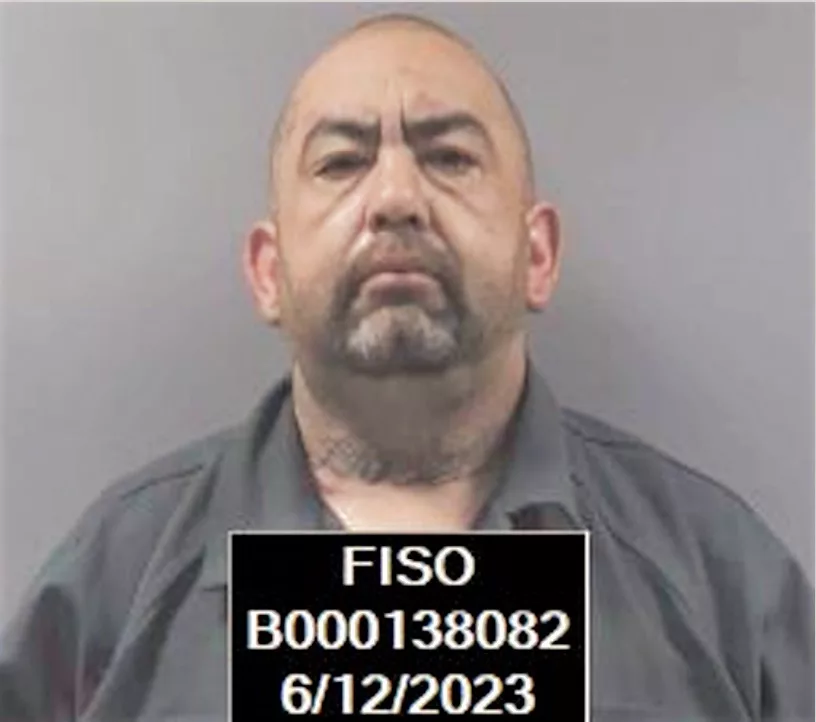TOPEKA – Unless squatters are allowed to run roughshod over a property in Kansas for 15 years, property owners in the Sunflower State are protected by stricter laws against squatting than many other jurisdictions.
That time requirement in Kansas belays what’s become an increasingly high-profile incidence of unauthorized takeover of properties by homeless and illegal immigrants flooding into the country through the southern border.
The issue became a national focus in March after a TikTok video went viral in which illegal Venezuelan migrant Leonel Moreno gave instructions in Spanish on acquiring U.S. properties the easy way.
“I have thought about invading a house in the United States,” Moreno said in the video. “I found out that there is a law that says that if a house is not inhabited, we can seize it.”
Fox News said Moreno was arrested by Immigration and Customs Enforcement after bolting from a border patrol program and is currently detained in Ohio. Prior to his capture, he managed to draw a million followers on TikTok and claimed he was pulling in $1,000 a day as an influencer on the app on top of receiving $350 a month in government handouts.

Moreno’s chutzpah in regard to helping himself to American property illustrates what’s become an ongoing battle against squatters across the country. In San Antonio, TX, one family is frustrated that a squatter who agreed to temporarily stay in their fixer-upper while making improvements has not left. In Oklahoma City, OK, one neighborhood is “fed up” with squatters who are taking over abandoned homes. In DeKalb County, GA, a landlord is losing sleep over squatters who “took over” his vacant rental home while he was away caring for his sick wife. According to a WSB-TV report, the squatters broke into the house with their possessions and switched the locks to prevent the landlord from entering.
Landowners find themselves hamstrung in numerous states trying to secure their properties. Earlier this week NYPD officers detained eight armed migrant squatters in a Bronx multifamily apartment which contained controlled substances and ammunition, according to authorities. Just a day later, on Tuesday, agents from the Department of Homeland Security returned to the dwelling to detain three more squatters suspected of weapons possession and drug dealing.
“Squatting” is illegally possessing a property one doesn’t own, and depending on laws that vary state to state, squatters have differing levels of entitlement to whatever property they’re presently occupying.

In all of these cases, the squatters are protected by laws that prevent them being removed from the structures that they are inhabiting. Known as “adverse possession” laws that are in place in all 50 states, they’re laws which allow a person to formally possess, i.e., acquire a valid title to another person’s property as long as certain requirements for eventual ownership have been met within a designated time frame, as indicated by the Legal Information Institute.
Under adverse possession laws, non-owners may act as the actual owner of a property by refusing to share that property with other non-owners or by preventing potential adverse owners from invading their place(s) of occupation. Adverse possession laws specifically state that renters do not qualify for adverse ownership; tenants who pay to occupy a particular property regardless of the length of their stay are not protected by squatters’ rights.
Adverse ownership is usually discouraged by a rule that requires the illegal possession of a property to be “open and notorious.” In other words, a real owner must become aware through personal observation that their property is being inhabited by an unwelcome individual. Adverse ownership can only prevail if, after making such an observation, the real owner does not report the intruder’s actions as trespassing and allows them to continue living there. The non-owners can then eventually gain full ownership of a piece of land or a residence.
Kansas law establishes that adverse possession can only occur after a designated period of time. The state’s adverse possession statute, K.S.A. 60-503, states that “no action shall be maintained against any person for the recovery of real property who has been in open, exclusive and continuous possession of such real property, either under a claim knowingly adverse or under a belief of ownership, for a period of fifteen (15) years.” According to the Legal Information Institute, state jurisdictions typically establish thresholds of 7 to 20 years, although these may vary.
While squatting itself is a lawful activity, possession claims that are kept a secret cannot graduate to full adverse ownership; this means that squatters attempting to stay hidden are actually behaving illegally. Knowing how to recognize and report hidden intruders is a necessary skill for homeowners who hope to take proper action against the illicit actors and effectively guard their possessions.
Kansas landowners and homeowners can acquire a Civil Information Sheet and a Petition for Eviction that, if approved, can authorize members of law enforcement to evict squatters. Intruders may only be evicted by landowners if they are provided with an adequate warning. Kansas law requires that owners give non-owners a three day notice to leave before an eviction case can be filed and subsequently considered in court.
But no remedy is immediate. Filed documents must be approved by and processed through a court of law which can allow squatters to remain on the affected person’s property for several weeks or months without paying rent or keeping up with proper maintenance.

Ursula Billings
Ursula Billings is a freelance writer for The Kansas Informer. She will graduate in May with a degree in Ag Business from Fort Hays State University and begin courses as a first-year law student at University of Kansas School of Law in August 2024.





The weak spot on all this, which really the KS Legislature should address and correct, is that “While squatting itself is a lawful activity…” So, as Ms. Billings accurately notes re KS, the laws presently “can allow squatters to remain on the affected person’s property for several weeks or months without paying rent or keeping up with proper maintenance”, during which time (as has occurred in years past on Rhode Island St. west of me), squatters utterly destroyed a small house. It since has been demolished (as in gone, rather than what the squatters did to it, which also fits that definition!).
The existing KS Landlord-Tenant law covers everything involved between an owner and persons occupying a premises by agreement. Squatting, which involves NO agreement with an owner, ought to be made summarily illegal, with immediate forcible eviction by law enforcement authorized. This will very soon become crucial in KS, as more waves of homeless and migrants arrive looking to exploit vulnerabilities in law. I have been told (but cannot verify– not my role) in the past few days that this (illegal migrant influx) has become an issue in old Prairie Village.